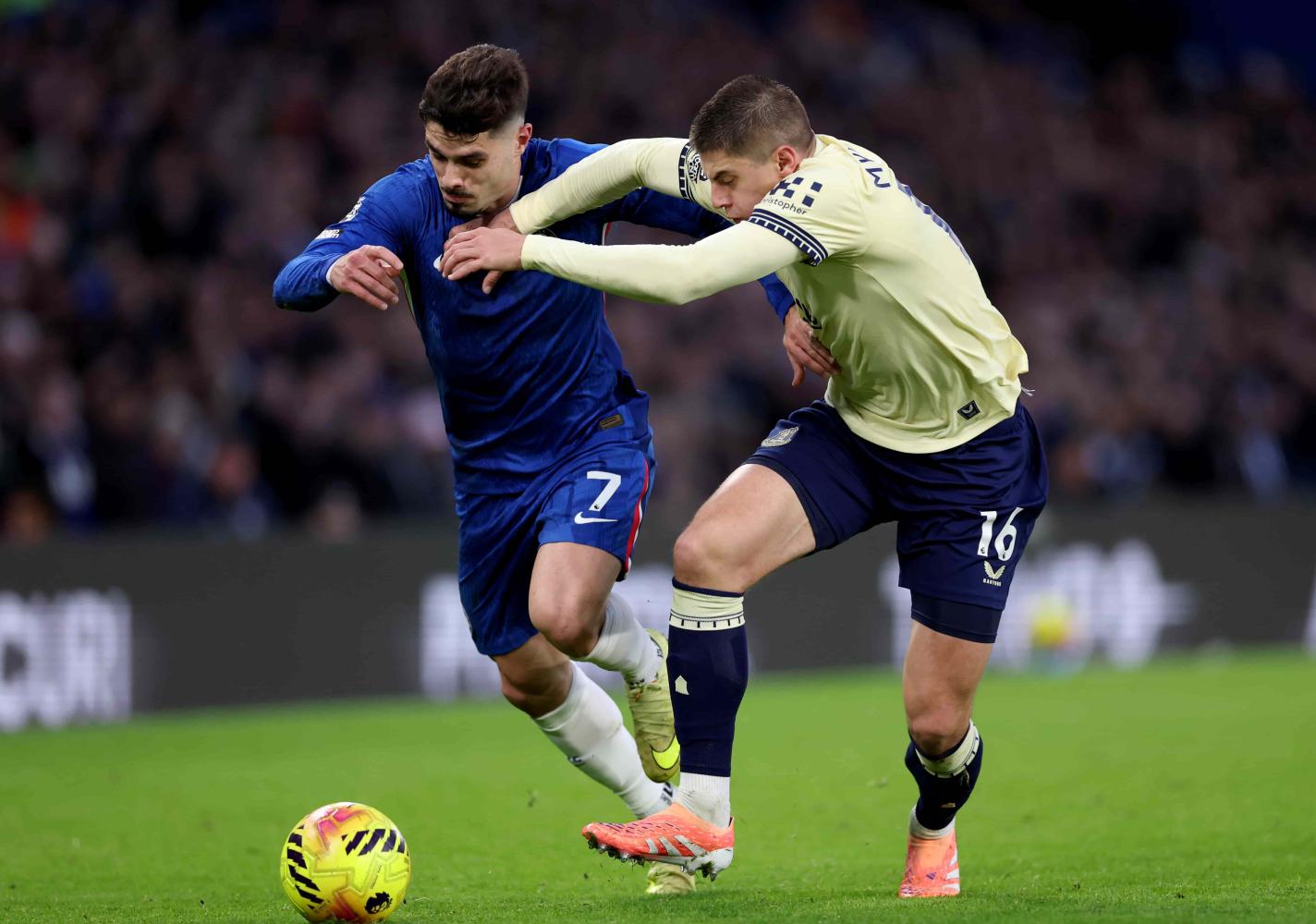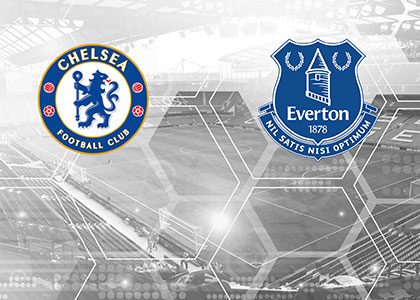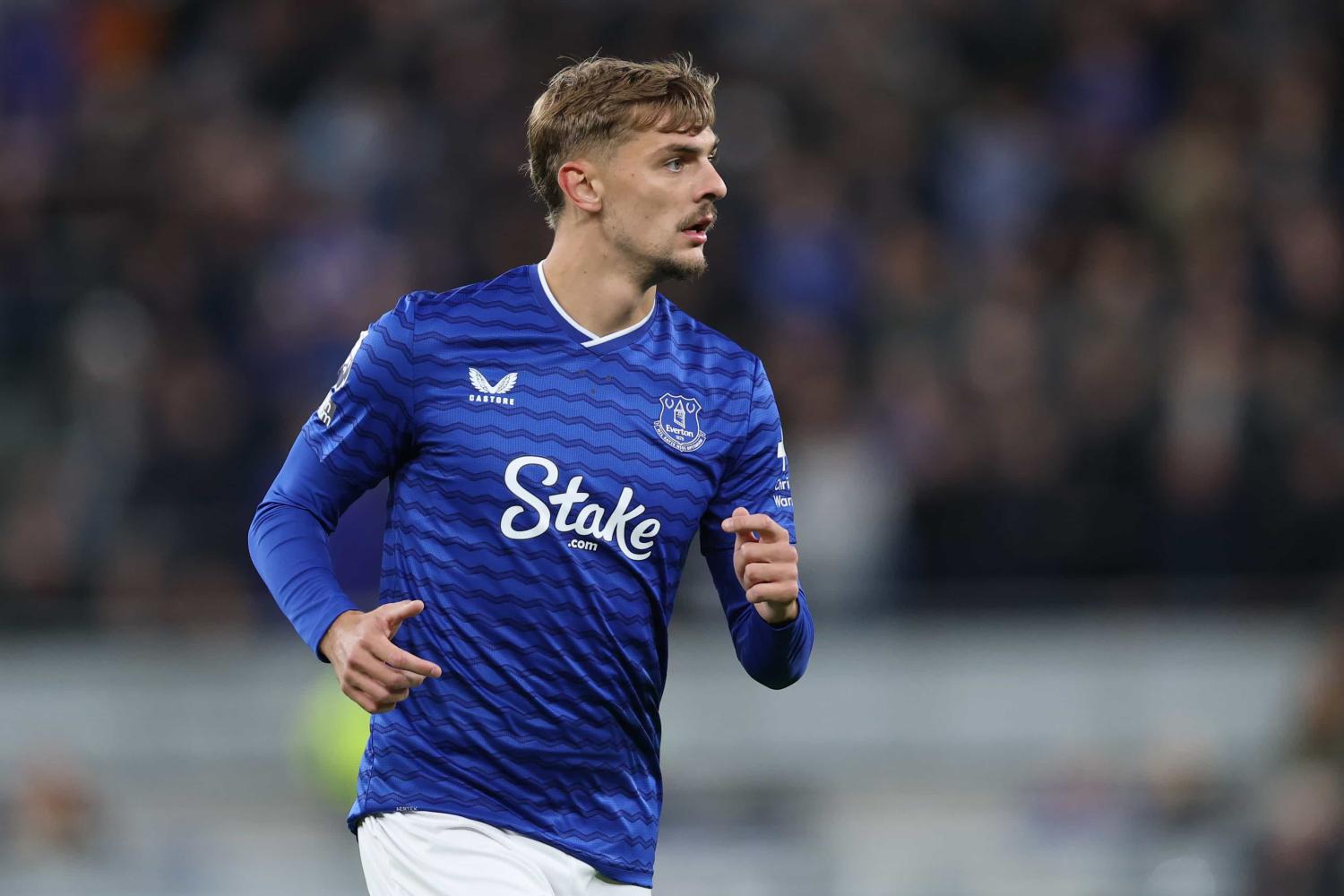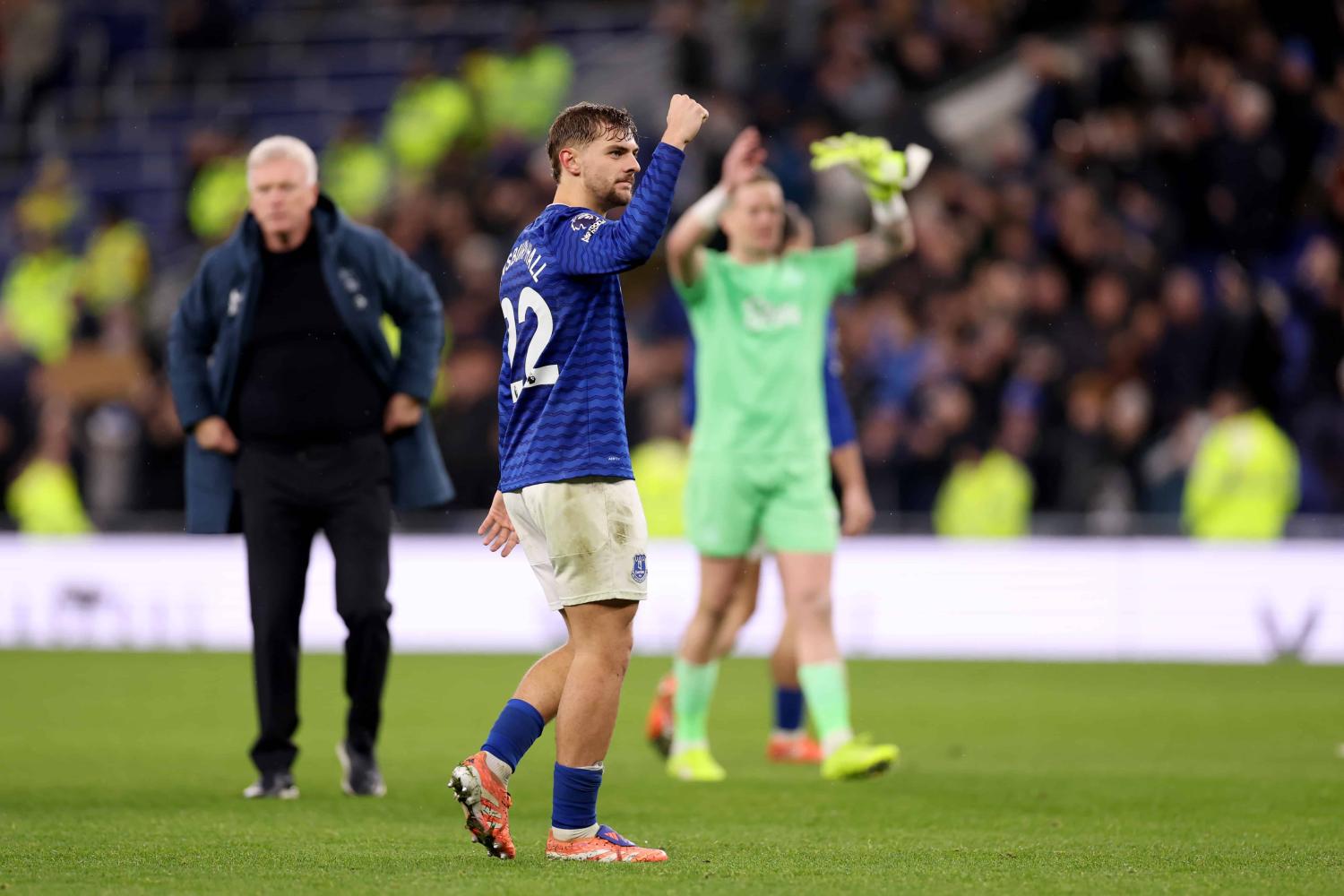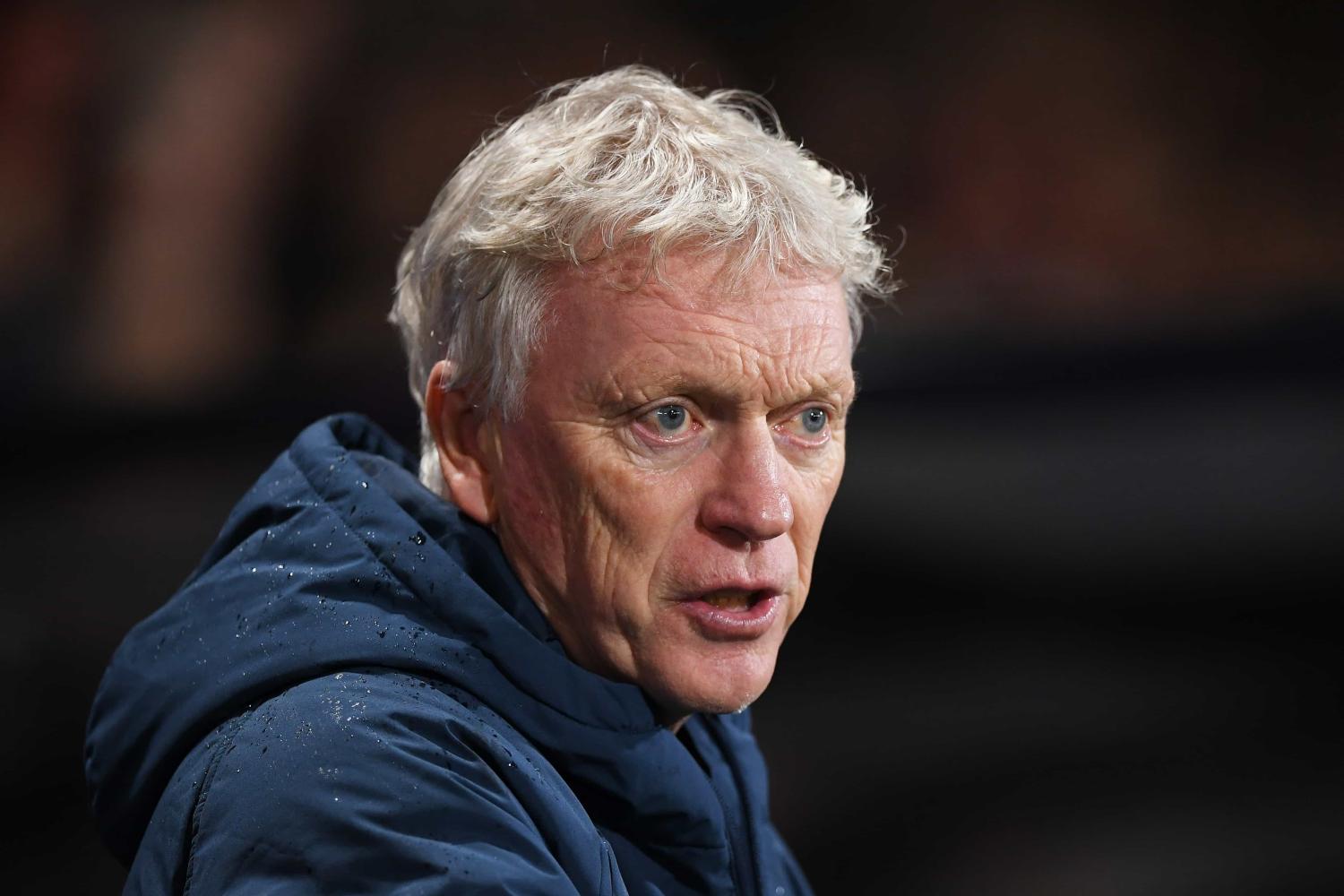|
The Rob Fox Column Partners in Crime
If nothing else, the Annual General Meeting of Everton Football Club Co Ltd the other week made one thing crystal clear. Those wanting major personnel changes in the top positions at Goodison Park are going to have some waiting to do. In truth, I don�t think anybody can be surprised as to the mutual support between Kenwright, Wyness and Moyes. Whether you believe them to be capable of improving our fortunes or not, at least there is some sort of unity between the men who have the most influence on our future. In theory at least, that can only be a good thing � unless of course you think they are all as useless as each other. As expected, the AGM passed without major incident, with reassurances from the major players that everything is in hand. I doubt anything that was said will have drastically changed anybody�s viewpoint regarding Moyes, Wyness or Kenwright�s ability to do their jobs effectively. One of the features, if that�s the right word, of Kenwright�s ownership has been his loyalty to, and close working relationship with, his managers. It could be argued that this suits both parties as they can present a united front and sing each others� praises to deflect criticism. Whether it is that cynical I don�t know, but certainly Bill Kenwright seems entrenched in his position and there is no likelihood of him selling up any time soon. Kenwright�s comments at the AGM would seem to indicate he is desperate to remain in charge and it is certainly of note that Paul Gregg has remained in the background of late. Similarly, despite regular rumours, none of the rich Evertonians waiting in the wings to pump money in have been moved sufficiently by our current plight to go public. We are told that certain people will only invest if Kenwright steps aside, but quite honestly I think if there was a passionate Evertonian desperate to bankroll the club we would know about it by now. Since Keith Wyness�s arrival, some progress does seem to have been made in terms of stabilising our finances. So far he has mainly used the obvious tactics of increasing prices to bring us more in line with our competitors and trying to improve our commercial departments, but these were almost certainly necessary steps and a sensible starting point. Prudence is certainly the order of the day, as re-iterated at the AGM, with Leeds United being used as the example of how not to proceed. Since the early 90s, our transfer policy seems to have been largely boom and bust, with big spending followed by a period of selling our best young players. We have not had a sustained period of growth and have consistently struggled to match the wages which some clubs can pay. Regardless of whether you think the Board of Directors have been overly conservative, it is a basic fact that our wage budget has cancelled out a high proportion of our turnover for many years and the only realistic way to increase our wage budget significantly is by increasing revenue accordingly. By the same token, we have struggled to make an operating profit for many years � this is the first we have managed to do so in years, even if it is only �100k � which means that any transfer funds have to come from other sources. Traditionally this has been by borrowing and player sales. Like it or not, without major investment, this is a very hard cycle to break. During Walter Smith�s tenure, Peter Johnson took the full flak for the sale of Duncan Ferguson, when it would seem that Smith was actually aware that Ferguson would be sold, just not on that particular day. Since then, we have seen Hutchison, Barmby, Ball, Jeffers and of course Rooney sold to raise much needed funds. The difference since Johnson left is that Board and Manager � both Smith and Moyes � have presented a united front each time and the players have largely been made to look disloyal and mercenary. There is evidence to support the theory that the sales were instigated by the club to appease the bank with said players being alienated until they asked for a transfer. On the other hand, it is also entirely possible that these players simply felt the need to move on from a struggling team to boost their careers and/or their pay packets. The only thing that is certain is that the only sure fire way to keep players happy is to offer either success or money, and there has not been much of either at Everton in recent years. Dominic King�s recent reporting of the club�s annual financial figures were clearly written with the aim of putting the club in as good a light as possible. Clearly, the relationship between club and local journalist is symbiotic and the goodwill doesn�t just work one way. As an Evertonian, I feel it would have been far better to focus on the relatively minor, but encouraging, fact that we had finally made an operating profit rather than to dress up Rooney�s sale as a financial masterstroke. Then again, every mention of it I found in a national newspaper, quite possibly using the Echo report as a source, summarised the figures as showing a great improvement for Everton and focused on us possibly joining the mythical �rich list�. Nowhere was it pointed out that turnover is not profit and that selling your assets is not necessarily a recipe for long-term financial growth. Still, what would a tabloid do with details and analysis? So, as a PR exercise, the presentation of our annual financial report as a great triumph may not have fooled clued-up Evertonians but it seems to have fooled the world at large, which is perhaps the point. With the team struggling, any attempt by Moyes, Kenwright, Neville, Bent or anybody else to pacify or reassure us that better times are around the corner sound hollow to us, but truthfully, what would you have them say? When Marcus Bent let slip that we were struggling for confidence earlier this season he was roundly condemned for being negative in public. It could be argued that everybody should just shut up, but of course it doesn�t work like that. The media would simply have a field day. Moyes's point-blank refusal to discuss Roy Keane after the WBA game was greeted by Sky TV with a similar response to if he�d just admitted to being a closet kopite. Giving the media what they want is all part of the spin society we live in and, like it or not, if we alienate the media, it will do the image of our club no good at all. At present there is no direct line of communication between club and supporters. Any comment from the club, even private e-mails from club staff to supporters, have a habit of entering the public domain for scrutiny by supporters, the media, agents, players and other clubs. The AGM, for example, is ostensibly a private opportunity for all shareholders to find out if their money is being used properly, yet somehow every word spoken ends up in the public domain� If there was some way for interested supporters to get together and form a Fans Council or Supporters� Trust, it may be easier for the club and supporters to work together and for them to be more accountable to the ordinary fan�. No that�s a stupid idea, and besides it seems that the movers and shakers of that particular endeavour have found another way to get their voice heard in the newly formed Everton Shareholders 2005. Maybe I�m barking up the wrong tree there, but the formation of Everton Shareholders 2005 highlights just what a disparate group Evertonians are and how difficult it is to reach a concensus view. No matter what is said officially, somebody will have cause to complain and in the end all that really matters to most supporters is results. The club could say whatever it liked if we were top of the league. None of which helps us to really assess our true standing at present. For a multitude of reasons we have been left behind since 1987. The rich clubs are getting richer and it is getting increasingly harder to keep up. Whether the Board could do more to boost our image and attract investment is a moot point, and whenever a golden opportunity to really make a mark presents itself we never seem to do ourselves justice. Quite clearly, the Board have no dramatically innovative ideas to radically improve our turnover and standing in the game, but then who does? If we look at the richer clubs, they are generally either bank-rolled by a benefactor, have invested heavily in facilities to make them a more attractive proposition or simply have a tradition of success that attracts worldwide support and sees them through the lean times relatively unscathed. Clubs such as Tottenham and Newcastle who trade on the stock exchange seem to be more affluent, but whether that is the right route for Everton I really don�t know. For the rest of us, regardless of past successes, there is no magic wand. Steady growth and good management on the football side are the order of the day. Last May we would have said we were making fairly rapid progress in this department, but our dreadful start to the season has kicked us back a few notches. With limited funds to invest in a new stadium or other commercial ventures that will dramatically increase our turnover, we have little choice but to be prudent and aim for steady growth. Relative success on the pitch was a major factor in our increased turnover, but we have seen how transient that can be. We are one of any number of Premier League clubs who are inconsistent over time, making it difficult to budget. Having finished 4th it would have been tempting to take a few risks and budget for a high finish again and spend accordingly on, for example, wages. What seems clear is that Moyes and Wyness are united in feeling that conservative budgeting and steady progress is the way forward. Many Blues feel we have wasted an opportunity this season and should have pushed the boat out more financially. Fair enough, but what if we had spent another �15M or so on players, restructured our wage budget, beaten Villarreal with a brace from Dirk Kuyt in the first leg, and then gone out in the group stages and been mid-table in the league by now? Paying a player an extra �5k a week than anybody else may not seem much, but it works out at �260k a season, �1M over a 4-year deal. But that is not the end of it. Moyes seems to take a hard line with agents which may well have scuppered a few deals. Obviously some compromise is necessary, but Moyes seems to have a clear line he won�t cross. Whether this is good or bad is debatable, but it is fair to assume that most agents will try to squeeze as much out of a deal as possible, given that their client will usually have several options and is negotiating from a position of power. If a manager gets a reputation as being hard to bargain with, that will inevitably scupper some deals, but there is a very fine line to balance. If an agent�s remit is simply to get the best deal for the player from all interested clubs, then perhaps the player�s motivation comes into the question. If, as in the case of Arteta, there is a genuine willingness on both sides to get a deal done then haggling is to be expected. Moyes seemingly stuck to his guns and got his man, at the right price. If he had been weaker in negotiation we would undoubtedly be paying Arteta a lot more and it would affect negotiations with other players in future. To suggest that you can treat every deal in isolation is unrealistic. An extra �1M over four years on one player is one thing, but on a number of players it mounts up. One of the main issues for Leeds when it all went pear-shaped was not transfer fees but the extortionate wages they had been conned into paying for average players. Regardless of whether you believe he has bought well, one aspect of Moyes�s time is that we have largely been building a squad steadily, accepting the huge amount of deadwood he inherited and had to get rid of. The only players we have been reluctant to sell have been Gravesen and Rooney. With Gravesen reaching the end of his contract, that deal was a fairly straightforward decision, but obviously with Rooney there is still some controversy. Earlier I highlighted the number of players who left under Smith who may or may not have been engineered out of the club for financial reasons. Given the size of the squad and the wages Rooney could expect to demand post Euro 2004, the fact that the only money spent on players since he left has seemingly been raised by his transfer fee does lead credence to certain conspiracy theories. Whether we will ever be sure of the truth is unlikely. But that deal was the exception and in general Moyes has not had to sell players he has wanted to keep. That can be seen as a positive sign of progress, although it is clear we are still not generating a profit sufficient to generate a significant transfer budget. It would seem that any significant money Moyes is given in January will come from player sales or by taking a financial risk and borrowing from somewhere. Personally, I would like some transparency. If we have to sell to buy, and say Cahill is sacrificed, I would hate to see an elaborate scenario acted out. On the other hand, whether it would help the club�s bargaining position in the transfer market to tell supporters the truth is another matter. Whether the Board are being duplicitous when things are kept under wraps or simply being businesslike is unclear. Whether all of this makes the club a farce is open to debate and is perhaps the crux of the whole Moyes debate. If he was replaced, it would still be a very difficult job and I doubt many high profile managers would be happy to work on a tight budget. Some exotic names have been mentioned, but would the next Mourhino or Wenger want to come here? Maybe the next Perrin�. Similarly with Kenwright, is he better or worse than other chairmen of clubs lacking financial muscle? There is no doubt PR and spin are perhaps the same thing, but they are necessary evils. The Blair administration, for example, is woefully transparent if you can see through the spin, but that is the way of the world. It is very hard for anyone in a position of power to admit to fault without damaging the institution they represent and they will always try to turn a negative into a positive. Mistakes have undoubtedly been made, but Kenwright is at least showing signs of a willingness to accept that and learn from them. Too little, too late for some people, but again what would really be gained from true transparency other than bad publicity for the club? And there is such a thing as bad publicity, whatever anybody might say. Players and agents can read, contrary to popular belief. As we saw with Stretford, an agent will always look to exploit weakness, and would not be doing his job if he didn�t. How much of this seeming willingness to improve is down to pressure from shareholders and supporters is unclear, but there are some signs of progress and a seeming desire to continue in that vein. How competent those in charge are is of course debatable, but what is for sure is that Wyness and Moyes are both only part way through the job they want to do. Whether they should be given more time to finish their respective jobs is a matter for constant debate, but the simple fact is that Kenwright seems to have total faith in both men. Whether he is primarily concerned with keeping loyal people around him I don�t know but, even if Moyes was to go, whoever comes in would have to get past Bill Kenwright first, and whether we would see major changes in policy I very much doubt. Some may see that as cause for despair, and perhaps it is, or perhaps we just need to be more realistic. We have not had an awful lot to offer a prospective manager for a long time in comparison with other big clubs. Moyes has many good qualities and has made clear improvements in some areas, and arguably in many others. He has made mistakes and will continue to do so, but that is true of every manager. Given our financial limitations, what is certain is that the margin for error is smaller than at many of the clubs we are expected to compete with. Whilst some Blues point at the �5M spent on Richard Wright and James McFadden and their failure to live up to expectation as proof of Moyes� incompetence, �5M Andy Reid looks like slipping out of the Tottenham exit door un-noticed. Similarly, while the likes of Massimo Maccarone and Hugo Viana have been loaned out when out of form, we cannot afford such luxuries. For example, Simon Davies has been a disappointment so far, but we are not in a position to leave him out of the squad. For us, �3.5M represents a significant investment. Unlike Martin Jol, we can�t afford to go out and buy a player for �2M on deadline day just in case. I�m thinking of Gregor Rasiak, in case anybody has forgotten. If we spend �2M on a striker, he�d better be bloody good, now. If a new manager had �150M to spend on players with a similar amount being spent on our facilities, the world would be our oyster. He wouldn�t, so it isn�t. Given that there is no shortcut to the top, steady progress is our only way forward. Given our financial constraints and high expectations it is a difficult job. So, when judging Moyes, Wyness and Kenwright, it is important to decide exactly how difficult you think their job is and compare us to other clubs in similar positions. The likes of Charlton and Bolton, who are not that much smaller than us in terms of finance at present, have benefited from stability and small steps over a long period. Aston Villa, Tottenham, Newcastle and Manchester City have, like us, changed manager and approach regularly and yo-yoed accordingly. They have all, or should have, learnt that there is no short-cut to the top other than patience, a consistent approach and hard work. Whether you disagree I suppose depends on exactly how you perceive our standing in the game in 2005. Those of us who don�t advocate an immediate change of manager are accused of looking at Moyes through rose-tinted glasses. Perhaps those making those accusations are guilty of doing the same thing � not with Moyes but Everton Football Club itself. To the outside world, we are maybe not as big or important as we think we are. Possibly big changes at the top, starting in the Boardroom, would accelerate our progress and drag us kicking and screaming into the G14. All well and good, but unless you know exactly what changes are required, how they can be realistically achieved, and who is around to achieve them, it is just pie in the sky. So, whilst I do think it is important to keep scrutinising what is going on at our club, it is equally important to keep everything in a realistic perspective and not get too carried away with how the grass is greener elsewhere. Unless you are the man to buy out Bill Kenwright and bankroll the club, you are probably best just strapping in and getting ready for a bumpy ride. If you feel the need to blame all and sundry for every bump on the road, that is up to you... but in reality you might just have to accept that this is all part of a long and arduous journey. Changing the driver every so often doesn�t necessarily make the vehicle perform any better. Or, if you prefer the analogy, a different captain might not negotiate the icebergs any better with clapped out radar. I know some of you will see this article as just more excuses for Moyes, but if you take it for what it is, you will see that this article is not really about him at all. Whether you believe Moyes should be sacked or not, whoever is employed as Everton manager will have to work under certain constraints. If there is a point to this article it is simply that the club is unlikely to change direction any time soon, regardless of who is the manager. Slow and steady is the order of the day and unless there really is a pot of gold at the end of the rainbow, or perhaps just past that iceberg up ahead, it is likely to stay that away. Whether that is due to the incompetence of those in charge or simply circumstances, or a combination of the two, nobody can truthfully be sure. Which perhaps explains why there is a division in the ranks regarding the future of David Moyes and why it is not a straightforward decision as to whether or not changes in personnel will have the effect some people expect. Whether David Moyes is the right man for Everton Football Club I can�t say for sure, although personally I believe he is. But my opinion of his abilities is neither here there. Quite clearly, he is the right man for Bill Kenwright, and for now that is all that really matters, because essentially Bill Kenwright is Everton Football Club and will be for the foreseeable future seeing as a viable alternative, or a magic wand, doesn�t seem to be forthcoming.
Rob Fox
|

